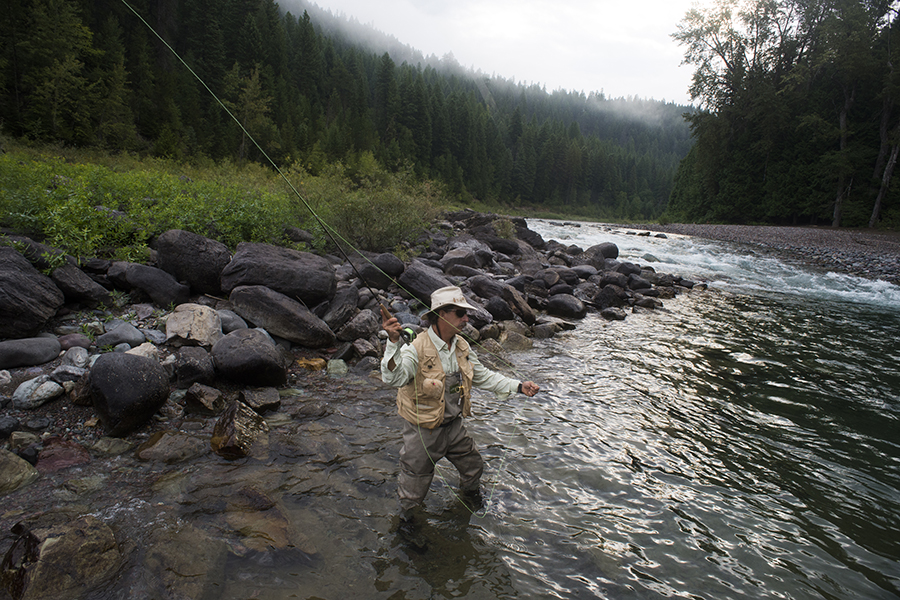Outdoor recreation is not only intrinsic to the Montana lifestyle, it is also one of the most crucial parts of the state’s economy— a point that was again underscored in a new report by the U.S. Bureau of Economic Analysis, which listed the Treasure State as a top contributor to the nation’s gross domestic product in revenue generated by outdoor activities.
According to the report, the outdoor recreation economy accounted for $427.2 billion of the country’s national gross domestic product (GDP) in 2017. This amounted to a 3.9 percent growth over the previous year, which outpaced the 2.4 percent growth of the overall U.S. economy. Further, in real gross output, compensation and employment grew faster in the outdoor recreation economy than the national economy as a whole, the report states.
For its part, Montana ranked at the top for its size, placing second only to Hawaii with 5.1 percent of its GDP linked to the growing outdoor recreation economy, much of which takes place on its vast swaths of public land.
“All of these facts and new economic research point to a clear conclusion: Our public lands are an economic asset — one that contributes significantly to our state’s economy, our communities, and the jobs and businesses that are started and built here,” Marne Hayes, executive director of Business for Montana’s Outdoors, said.
Federal policies such as the Land and Water Conservation Fund (LWCF) that improve access to public lands while investing in recreation assets and waterways are creating new jobs, Hayes said, and in Montana alone the LWCF is responsible for more than 75 percent of the state’s fishing access sites.
The rising tide of outdoor recreation will be on prominent display this week as the Montana Governor’s Office of Outdoor Recreation, in partnership with the Crown of the Continent Geotourism Council and the Montana Access Project, hosts the 2019 Business of Outdoor Recreation Summit: Recreation Innovation Lab in Whitefish, Mont. on Oct. 10-11.
The 2019 Innovation Lab will bring together more than 100 local officials, experts and entrepreneurs from across Montana, Alberta and British Columbia to share ways to enhance access to outdoor recreation in “frontcountry” areas.
According to organizers, local and gateway communities are increasingly looking to offer quality recreation in the “frontcountry” — places considered easy to get to by car or for day trips — because of their vast economic potential.
“There is a wealth of knowledge and creative thinking around creating frontcountry outdoor recreation opportunities in a multitude of communities on differing landscapes — from mountains to prairies, lakes to rivers, and public to private land,” Rachel VandeVoort, director of the Montana Governor’s Office of Outdoor Recreation, said. “In this Lab, we will come together and share our unique expertise working as Montanans and neighbors in the Crown region to elevate each other’s well-being and economic vitality.”
Outdoor recreation overall contributes an estimated $7.1 billion to Montana’s economy and brings more than 12.4 million visitors to the state each year. Access to unspoiled nature enhances the quality of life for the state’s 1 million residents and provides a unique, competitive advantage to recruit new businesses and retain job-creating innovators, VandeVoort said.
The Recreation Innovation Lab will take a “deep dive” into the nuts and bolts of how to start, how to grow and how to maintain quality frontcountry outdoor recreation experiences for residents and visitors alike, organizers said. Leading experts will share their experience, knowledge and inspiration in the following areas: Planning, Design and Construction; Public and Private Land Recreation; Operations and Maintenance; Funding; Legal and Risk Management; Economics; Public/Private Partnerships; Community Engagement.
“The impact of outdoor recreation on the economy and well-being of communities in Montana and the Greater Crown of the Continent, including British Columbia and Alberta, is undeniable. Not only is it consistently the top reason people choose to live and visit, but it has become a powerful tool in industry and employee recruitment and retention,” Sheena Pate, project coordinator for the Crown of the Continent Geotourism Council, said. “We’re bringing together diverse stakeholders to ensure the value of one of our leading economic drivers is understood, supported and planned for. Not just for the industry’s sake, but because we are all inherently tied to the health of the landscape.”
